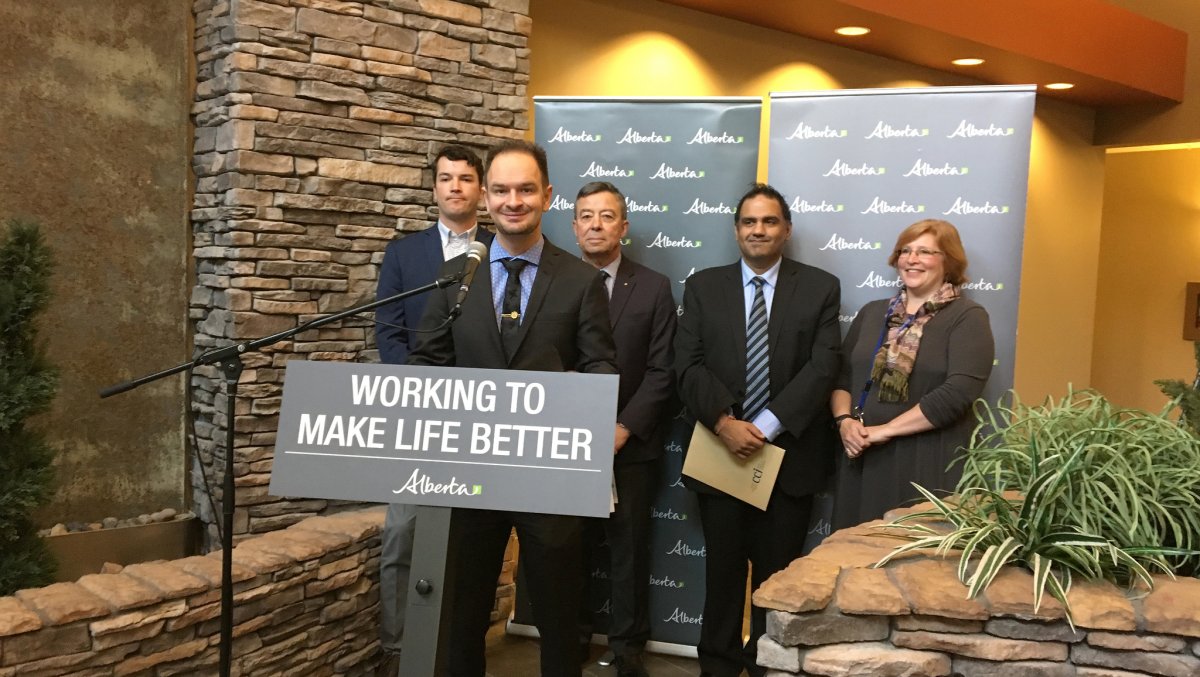Alberta condominium boards will have to be more transparent as a result of changes made to the province’s Condominium Property Regulation, Minister of Service Alberta Brian Malkinson announced Friday.

Among the changes made were adjustments to the rules on how condo corporations can issue bylaw fines, how condo owners’ investments are protected and how reserve funds are managed. Some changes related to insurance matters were also made.
Many of these new rules come into effect on July 1, 2019.
Anand Sharma of the Canadian Condominium Institute (CCI) joined Ryan Jespersen on 630 CHED on Monday to explain how many of the changes will affect condominium owners.
“This is huge for condo owners,” said Sharma, who is president of the North Alberta chapter of the CCI. “We’ve been waiting for this regulatory change for 18 years. It was a big piece of legislation.”
Listen below: Anand Sharma of the Canadian Condominium Institute joins 630 CHED’s Ryan Jespersen to discuss the changes to condo regulations in Alberta
The Alberta government is putting the onus of transparency on condo boards. Minutes must now be provided in writing to all condo owners, condo boards must provide agendas for annual general meetings well in advance and annual budgets must be distributed.

Get daily National news
For Sharma, the improved transparency is laudable but comes with a tangible price for the increased administration and printing costs.
“There is a balance that needs to be had. They’ve listened to the concerns owners have had but there might be unintended consequences, and I don’t know if they thought that one through,” Sharma said.
Condo boards will be able to raise condo fees based on reserve fund studies or “the realities of current scenarios,” Sharma said. “They have a fiduciary responsibility.”
- Your holiday shopping may face a ‘triple threat’ if Canada Post strikes
- Canada approves Moderna’s RSV vaccine, first of its kind for older adults
- ‘More than just a fad’: Federal petition seeks tax relief for those with celiac disease
- ‘Huge surge’ in U.S. abortion pill demand after Trump’s election win
But those reserve fund studies will not be able to be penned by just anybody, as the updated regulations define study provider qualifications.
While it’s not mandatory under the Condominium Property Act or Regulation to have insurance to cover insurance deductibles, a condo board can now enact a local bylaw. And effective Jan. 1, 2020, condo boards will be able to go after condo owners for outstanding insurance deductibles up to a maximum of $50,000.
Sharma advises condo owners to look into an insurance plan to cover any possible deductibles.
“If you’re a condominium owner, make sure your personal coverage for your unit has deductible insurance for up to $50,000. Start preparing for that,” Sharma said.
The changes come as a result of consultations in cities like Edmonton, Calgary, Lethbridge and Fort McMurray that surveyed more than 5,000 condo owners across the province.












Comments